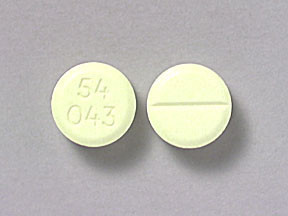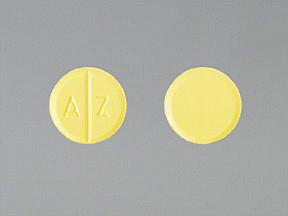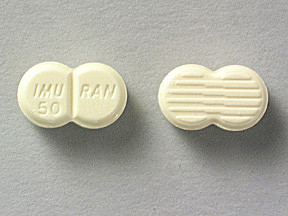AZATHIOPRINE - ORAL
PHONETIC PRONUNCIATION: (AY-za-THYE-oh-preen)
COMMON BRAND NAME(S): Imuran
GENERIC NAME(S): azathioprine
Uses
USES: Azathioprine is used to prevent organ rejection in people who have received a kidney transplant. It is usually taken along with other medications to allow your new kidney to function normally. Azathioprine is also used to treat rheumatoid arthritis. In this condition, the body's defense system (immune system) attacks healthy joints. Azathioprine belongs to a class of drugs known as immunosuppressants. It works by weakening the immune system to help your body accept the new kidney as if it were your own (in the case of an organ transplant) or to prevent further damage to your joints (in the case of rheumatoid arthritis). Talk to your doctor about the risks and benefits of azathioprine, especially when used in children and young adults.
How to use AZATHIOPRINE - ORAL
HOW TO USE: Take this medication by mouth as directed by your doctor, usually once or twice daily. Take this medication with food to reduce stomach upset. The dosage is based on your medical condition, weight, and response to treatment. Do not increase your dose or use this drug more often or for longer than prescribed. Your condition will not improve any faster, and your risk of serious side effects will increase. Use this medication regularly to get the most benefit from it. To help you remember, take it at the same time(s) each day. For the treatment of arthritis, it may take up to 2 months before your symptoms get better. Tell your doctor if your condition does not get better after 3 months of treatment. Since this drug can be absorbed through the skin and lungs and may harm an unborn baby, women who are pregnant or who may become pregnant should not handle this medication or breathe the dust from the tablets.
Side Effects
Precautions
Interactions
Overdose
Images
Reviews
Faq for AZATHIOPRINE - ORAL
Azathioprine is primarily used to treat autoimmune diseases such as rheumatoid arthritis, Crohn's disease, and ulcerative colitis. It is also used to prevent organ rejection in transplant patients.
Azathioprine works by suppressing the immune system's response, thus reducing inflammation and preventing the body from attacking its own tissues or a transplanted organ.
The common side effects of azathioprine include nausea, vomiting, diarrhea, loss of appetite, headache, hair loss, and skin rashes. It may also increase the risk of infections and decrease blood cell counts.
The full effects of azathioprine may not be seen for several weeks to months. It often takes time for the drug to build up in the body and start suppressing the immune system effectively.
Yes, there are several precautions and warnings associated with azathioprine. It should not be used in pregnant women unless the benefits outweigh the risks. It may also increase the risk of developing certain types of cancer, so regular monitoring is required. Individuals with a history of bone marrow problems or serious infections should use azathioprine with caution.
Yes, azathioprine can be used in children for certain autoimmune conditions, as determined by a healthcare professional. The dosage is typically adjusted based on the child's weight.
It is generally recommended to avoid excessive alcohol consumption while taking azathioprine. Alcohol can increase the risk of liver toxicity associated with the medication.
Azathioprine may interact with other medications, including allopurinol, ACE inhibitors, warfarin, and certain antibiotics. It is important to inform your doctor about all the medications you are taking to avoid potential drug interactions.
Azathioprine can pass into breast milk, so it should be used with caution while breastfeeding. It is best to consult with a healthcare professional for personalized advice.
Warning
WARNING: Azathioprine may rarely increase your risk of developing certain types of cancer (such as lymphoma, skin cancer). This risk is higher in people using azathioprine after an organ transplant and in children/young adults being treated for certain bowel diseases (such as Crohn's disease, ulcerative colitis). Keep all medical and lab appointments. Tell your doctor right away if you develop any of the following symptoms: unusual skin changes, change in the appearance/size of moles, unusual growths/lumps, swollen lymph nodes, swollen abdomen, unexplained weight loss, night sweats. This medication may decrease bone marrow function, an effect that may lead to a low number of blood cells such as red cells, white cells, and platelets. This effect can cause anemia, decrease your body's ability to fight an infection, or cause easy bruising/bleeding. Tell your doctor right away if you develop any of the following symptoms: unusual tiredness, pale skin, signs of infection (such as sore throat that doesn't go away, fever, chills), easy bruising/bleeding.
Disclaimer
IMPORTANT: HOW TO USE THIS INFORMATION: This is a summary and does NOT have all possible information about this product. This information does not assure that this product is safe, effective, or appropriate for you. This information is not individual medical advice and does not substitute for the advice of your health care professional. Always ask your health care professional for complete information about this product and your specific health needs.



No Reviews Yet